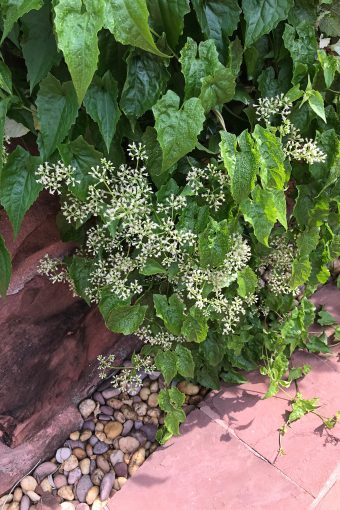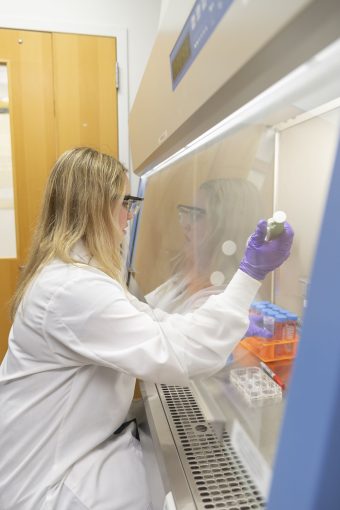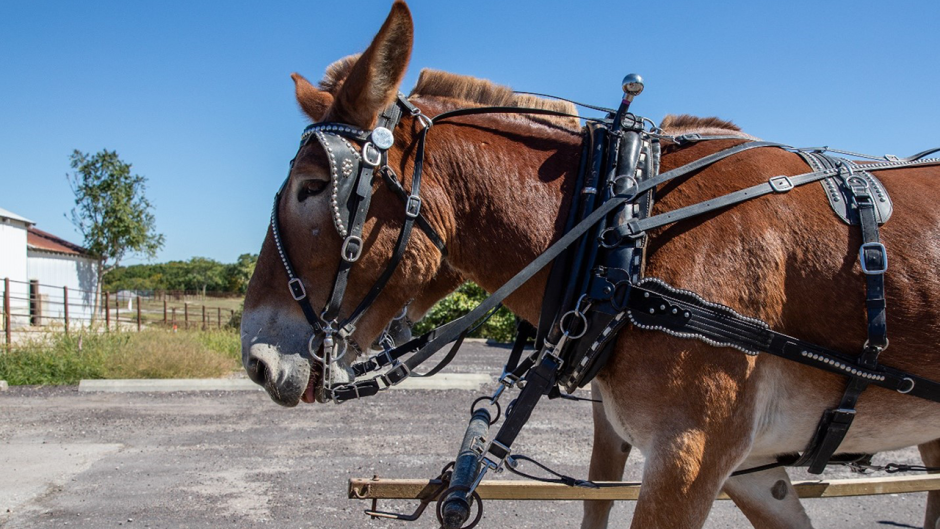
March 20, 2024
Contact: Courtney Perrett, 573-882-6217, cperrett@missouri.edu
Photos by Sam O’Keefe
At a young age, Lara Stefani was diagnosed with chronic asthma — a condition that affects approximately 300 million people worldwide. Growing up in São Paulo, Brazil, easily one of the most populous cities in the world, Stefani knew she was among many people suffering from asthma due to bad air quality. She also knew that treatments intended to help her often came with unwanted, harmful side effects.
On a quest for long-term relief, teenage Stefani started researching and stumbled on Guaco, a tropical plant found in Brazil with triangular leaves and small white flowers known for its anti-inflammatory properties. In studying the chemistry of the plant, Stefani saw potential for using it to reduce and manage many of the disease’s symptoms, perhaps decreasing the need for pharmaceutical treatments. That discovery inspired her research niche — combining plants and chemistry to devise health-care solutions.
“I came to Mizzou because I wanted to be able to do something meaningful,” Stefani said. “It’s important to me to contribute to the scientific community and help find treatments for diseases that affect millions of people. That’s how I started researching polycystic ovary syndrome, which I believe is the second most common reproductive disease in women.”

Chasing down solutions
Stefani has always stood out from among her peers. As a 14-year-old high-schooler, she sought out scientists at the University of São Paulo, where she learned about plant tissue cultures, which help in understanding the building blocks of the vessels. Through her high school’s dual diploma program with Mizzou Academy, which helps integrate Brazilian and U.S. curriculum and prepares students for success both in college and in their careers, she heard of study abroad and research opportunities at the University of Missouri. A few years later, Stefani arrived in Columbia.
While she was still researching Guaco’s uses for people with asthma, this experience inspired Stefani to incorporate plants into her research in ways that harness the benefits of their natural properties as a way to diminish pharmaceutical interventions for serious diseases. Now, she works primarily with elderberries and soybean to find solutions for polycystic ovary syndrome.
Supported by an Undergraduate Research Internship from the College of Agriculture, Food and Natural Resources — an experience designed for student researchers to receive mentorship from their faculty researchers — Stefani has been fortunate to expand her research, leading to her most recent award from MANA.
“In mid-Missouri, elderberries and soybeans are widely available and both have useful pharmaceutical properties,” Stefani said. “I'm preparing more extracts for testing because both plants have natural products that can be used to assess hormone production, which is the major factor that plays into the symptoms of polycystic ovary syndrome because the disease is characterized by hormonal imbalance.”
Stefani explained that polycystic ovary syndrome is often a gateway condition to more complex disorders like cardiovascular disease and diabetes, which the antioxidant properties in elderberries could be key to managing.
“When I was a kid, I wanted to be a doctor because I was passionate about helping others and I’ve always loved science,” Stefani said. “But then I started doing research and realized I could still help people by using plants to boost human health — without the side effects of synthetic medicines.”

Growing her green fingers
For Stefani, plants have always been central to the mission. Her poster, which she titled “Potential Nutraceutical Management and Treatment of Polycystic Ovary Syndrome with American Elderberries” and presented to an international audience, hinged on her dedication to understanding people and the planet.
For her research on the ways in which elderberries can help treat polycystic ovary syndrome, Stefani won Best Undergraduate Student Poster at the Metabolomics Association of North America (MANA) annual conference.
As she works toward completing her degree, Stefani plans to expand the horizons of her research, angling to innovate solutions to help people suffering from diseases find relief in plants available where they live.
“I see huge potential in understanding plants and their uses and protecting them as vital resources and part of taking care of the environment around us. It’s a mutually beneficial relationship, and I hope to prove that. With Mizzou’s support, I hope this research will soon provide practical solutions for Missourians experiencing these diseases.”




